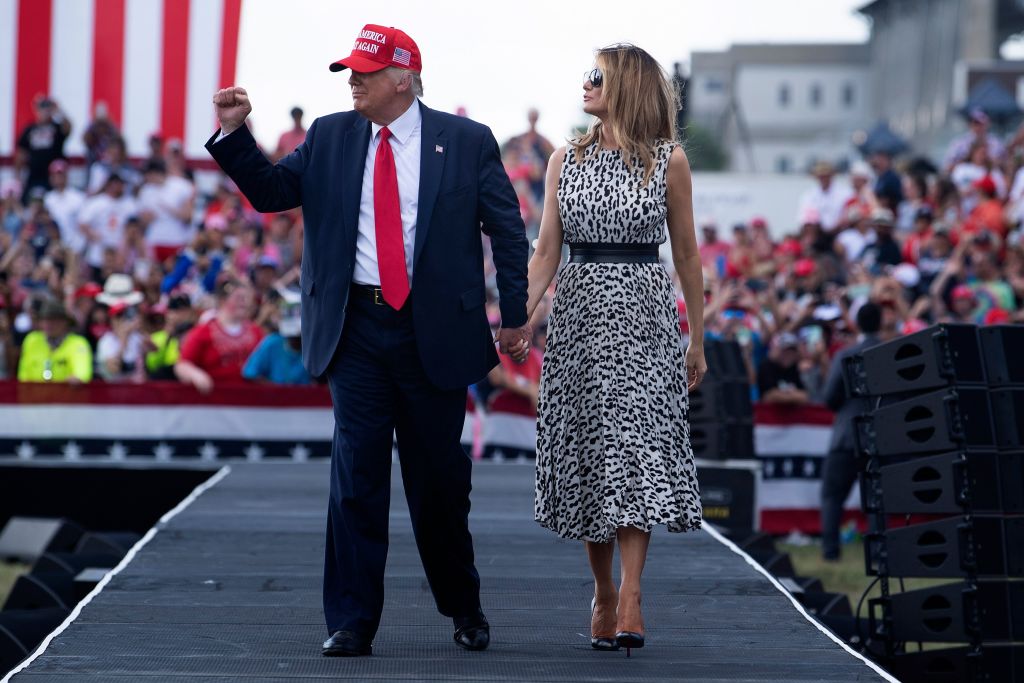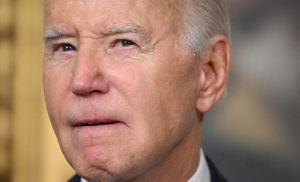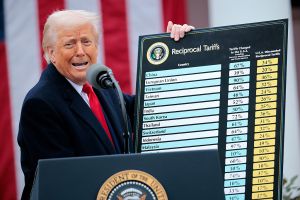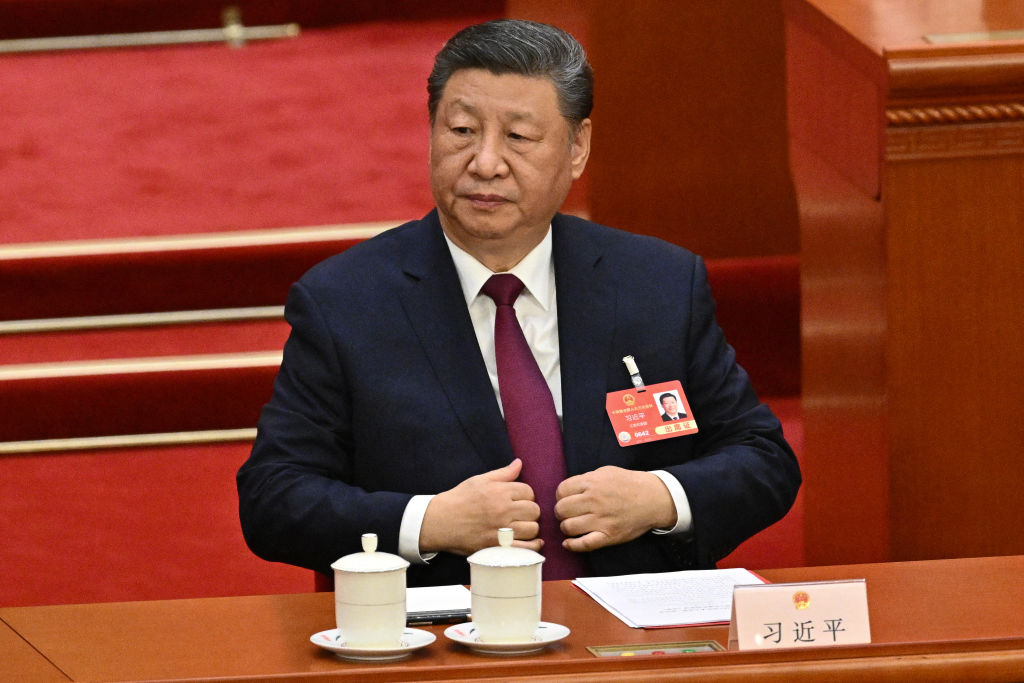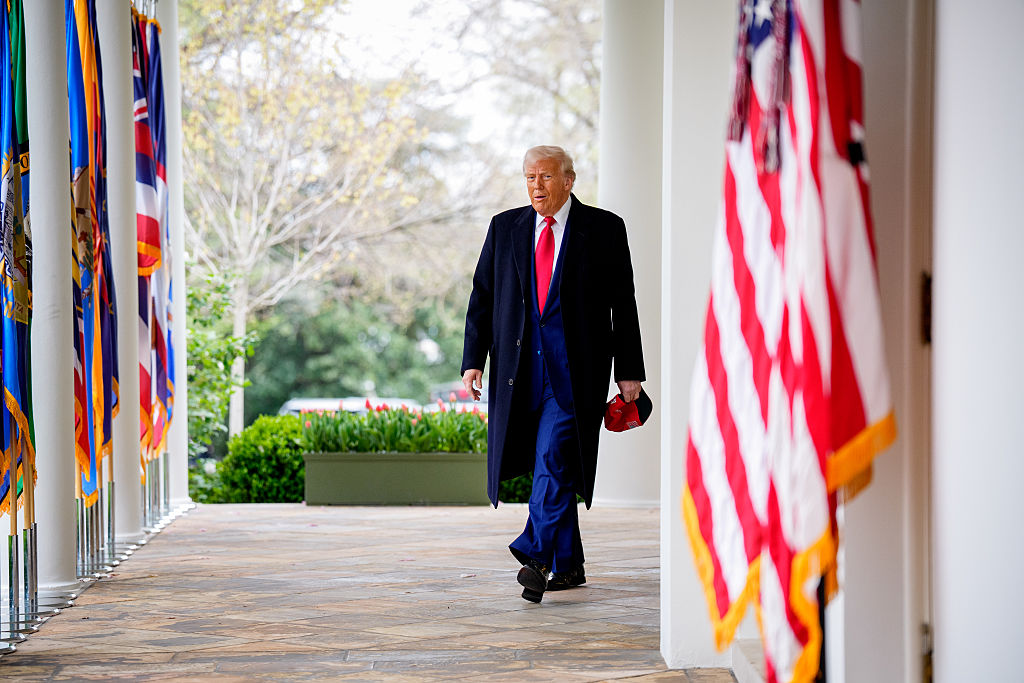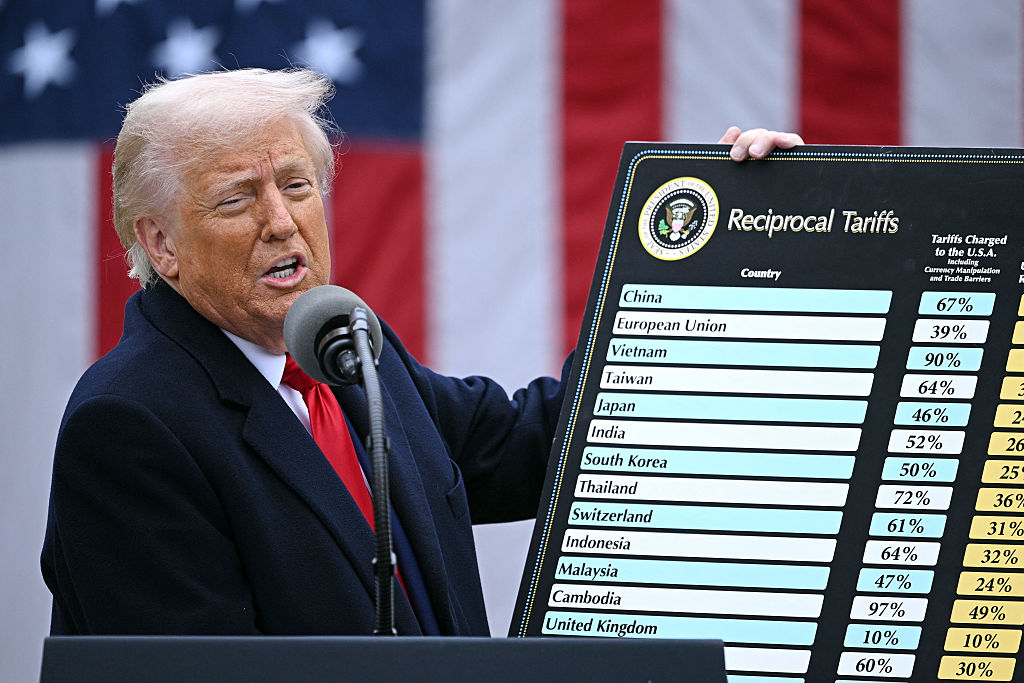‘Don’t let it dominate you. Don’t be afraid of it,’ Donald Trump exhorted on his return to the White House from his COVID-induced stay at Walter Reed. ‘We’re the greatest country in the world.’ It was the latest reminder that Trump’s extraordinary rise and controversial presidency cannot be understood without his longstanding belief in the power of positive thinking.
Trump learned this creed from Norman Vincent Peale, the pastor of Marble Collegiate church from 1932 to 1984 and the author of the bestselling The Power of Positive Thinking. Peale, who came to be known as ‘God’s salesman’, turned Christianity into a form of self-help. His eccentric faith rested on the claim that ‘attitudes are more important than facts’. He encouraged his flock to change their fortunes by changing their feelings. The path to success was to believe in your God, your country and yourself.
‘I still remember [Peale’s] sermons,’ Trump said in 2015. ‘You could listen to him all day long. And when you left the church, you were disappointed it was over. He was the greatest guy.’ Trump married the first of his three wives and buried both his parents at Marble Collegiate. He would later boast that Peale ‘thought I was his greatest student of all time’. There is some truth to the claim.
The power of positive thinking was stunningly evident in Trump’s first campaign. Peale advised his readers to ‘make a true estimate of your own ability, then raise it 10 percent’. In 2015, Trump took what others regarded as the true estimate of his own ability and raised it by 110 percent. (Something he also seems to have done in estimating his net worth.) Peale’s philosophy may be cockamamie, but Trump rode it all the way to the White House.
Since Theodore Roosevelt and Woodrow Wilson, all presidents have used the bully pulpit. They appeal directly to the American people rather than working solely through formal constitutional channels. But in a special sense, Trump’s has been a rhetorical presidency. His soaring speeches in Warsaw and at Mount Rushmore, his freewheeling rallies, even his Twitter posts have sought to reshape American attitudes as much as they have aimed at promoting any specific policy.
On immigration, trade and war, Trump has changed his party’s views. On China, he has led a shift in the views of the whole country. Perhaps the most surprising instance of his rhetorical leadership has been on the issue of abortion. In his final debate with Hillary Clinton, he described a procedure in which they ‘rip the baby out of the womb’ — probably the most explicit description of abortion ever aired on primetime TV. Neither this expression nor Abby Johnson’s speech at the 2020 convention, which provided the horrifying detail that abortion ‘has a smell’, would have been permitted in the party of the Bushes, with its faux-pearl decorum. Trump’s rhetoric marks a significant, probably irreversible, heightening of the abortion battle.
Yet there are limits to the power of positive thinking. Even Trump’s most ardent supporters have criticized him for failing to translate his rhetoric into reality. Certainly his efforts to change American attitudes would be more lasting if they were firmly enacted in policy. But facing the opposition of the entire Democratic party and almost the whole of the Republican establishment, he has found reason to focus on rhetoric to the exclusion of policy.
America needs more than a talking cure. Trump’s acts to limit abortion, revive American industry and limit immigration lack the lasting character of Barack Obama’s successful championing of the Affordable Care Act. Declaring that it is morning in America is not enough to ward off the twilight. But for all its faults, Trump’s positive thinking seems better than any actually existing alternative.
Witness the debates over our national history. Peale called America ‘the greatest country on earth’. He believed that ‘God is in the stream of history and that this nation was founded on belief in God and His laws’. His teaching, fed by postwar optimism, urged Americans to take pride in their country and themselves. Trump does likewise. He believes that, no less than individuals, nations need to think positively. Even when he decries ‘American carnage’, he does not impugn our founding or suggest that our history is indelibly stained. He counters the pessimism of some critics of America with an unapologetic optimism. He promises (in the words of the 2020 Republican convention) that ‘the best is yet to come’.
Of course, popular affirmations of America’s goodness will tend to rely on selective versions of our history. But when criticism of racism turns into attacking the flag, looting cities and toppling statues of our heroes and saints, even a superficial affirmation of our nation’s goodness will seem preferable to crude denunciation.
Positive thinking has a shadow side. Telling the suffering that they just need to ‘think positive’ implies they are to blame when their lot does not improve. The celebration of worldly success can tend toward contempt for the unsuccessful. This, more than anything, is what worried me about Trump’s campaign in 2016. But I now believe that those worries were selective and exaggerated, indicative of a certain snobbery. American institutions are being remade by a ‘successor ideology’ that celebrates ersatz victimhood. The present danger is not so much that we despise weakness as that we worship it in a false form. Our ruling class suffers less from shallow patriotism than from vain self-contempt.
There is one thing the American people know about Donald Trump: he, like them, is unequivocally pro-American. About the spokesmen for American liberalism, they feel they know no such thing — and with some justification. It has always been easy and sometimes necessary to criticize Trump, but the question remains — compared to what?
Matthew Schmitz is senior editor of First Things. This article is in The Spectator’s November 2020 US edition.



